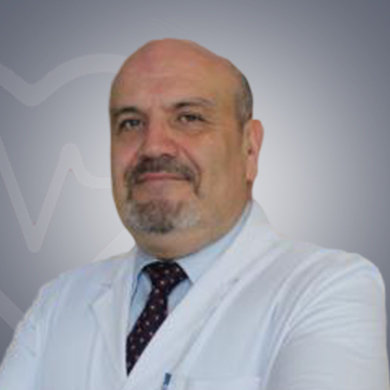
of experience
Speaks: English
The conditions that Dr. Murat Dede treats are listed below:
Some women require surgery to remove the entire breast through mastectomy. The surgeons remove the breast tissues including nipple and the skin and the tissues that have the chest muscles. You may opt for breast reconstruction after a mastectomy.
There are different types of cancer and each of the types produces different symptoms. The signs can be normal, such as weight loss, fatigue, and unexplained pain. You do not need to remember all these signs, but we bring here the key ones to make you aware of. These symptoms are a sign of cancer and detecting it early can save your life. Although there may be different symptoms in different types of cancer, some general symptoms of cancer include:
Dr Murat Dede is available for consultation from 11 am to 6 pm (Monday to Saturday). The doctor’s clinic is closed on Sunday.
Dr Murat Dede performs a wide variety of procedures for cancer treatment. Some of these are
The doctor has rich experience in performing complex cases with accuracy. The surgeon has performed a large number of procedures with a high success rate and adheres to medical protocols to ensure patient safety and speedy recovery. The specialist is proficient in using the latest techniques to perform the procedures and ensures that the patient has a speedy recovery. Cancer surgery is done using two techniques - open surgery and minimally invasive surgery. Open surgery involves making an incision to remove the cancerous tissues. Some adjacent healthy tissues are also extracted in this process. There are several techniques available for minimally invasive surgery, such as cryosurgery, robotic surgery, laparoscopy, cryosurgery, and laser surgery.

Share Your Experience about Dr. Murat Dede

Surgical oncologists are specialists who have received training in the diagnosis and treatment of cancer through surgery. A surgical oncologist performs procedures like biopsy and surgery to remove cancerous tissues. Surgical oncologists choose to perform surgeries to find out the locations where cancer has spread. While treating cancer, a surgical oncologist might remove cancerous tumors and surrounding healthy tissues, and nearby lymph nodes. The surgical procedures used will vary depending on the aim of the surgery. Surgical oncologists might do minimally invasive procedures or open surgeries.
Some of the most common test performed for the diagnosis of cancer are:
A biopsy is the most common procedure to diagnose most types of cancer. While other tests can only suggest if cancer is present, a biopsy can make an accurate diagnosis. During this process, the doctor removes a very small amount of tissues to observe under a microscope.
You should see a surgical oncologist in case your primary care doctor refers you to one. The doctor may also tell you to visit a surgical oncologist for the diagnosis of cancer. Some specialized general surgeons can also perform surgery on various types of cancer. An individual needs to consult a surgical oncologist in case of below situations: